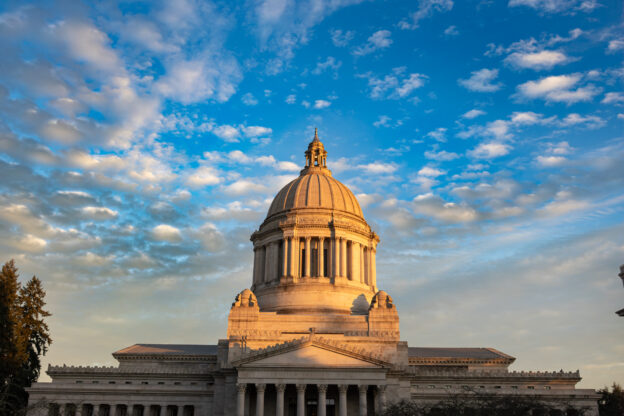On the final day of its 2025 session, the Legislature approved the 2025-27 state capital budget, with the two Senate Republicans who helped develop this budget praising it for addressing needs throughout Washington.
“I’m pleased that the capital budget passed by the Legislature addresses many needs throughout the state,” said 9th District Sen. Mark Schoesler, R-Ritzville, the lead Republican for the Senate capital budget. “Realizing there were limited resources to pay for the capital budget, we made tough decisions every step of the way, working on priorities that satisfied both our side and the Democrats.
“I’m also pleased this budget leaves healthier reserves than is often the case going into the second year of a biennium. That’s important for addressing unforeseen problems next year.”
“The Republicans and Democrats on the Senate capital-budget team are on the same page – but our House counterparts have their own priorities, so there was a fair amount of pushing and pulling to get to a final product,” said Sen. Perry Dozier, R-Waitsburg, assistant Republican leader for the capital budget.
“I’m proud of how we held firm on the things the Senate views as most important, which include investments that will be seen in all four corners of the state. Education and behavioral health are priorities in rural Washington as much as anywhere in our state, and that is reflected here. It’s a solid budget, and deserving of the strong bipartisan support it received today.”
The new two-year state capital budget has a total price tag of $7.6 billion, with an ending-fund balance of $349 million. The Senate passed the capital budget 47-0 and the House approved it 98-0. It now goes to Gov. Bob Ferguson for his consideration.
It includes $975 million for K-12 education and early-learning projects, including $430 million for the School Construction Assistance Program. There is $202 million for Small District and Tribal School Modernization construction and planning grants, which will fund 40 additional small-school construction projects.
Another $151 million is provided for additional school seismic-safety grants, plus $6 million for the new school security and preparedness infrastructure grants program. The budget includes $5.15 million for CASE/Ag Science in Schools grants.
The capital budget spends $781 million on numerous housing programs.
Schoesler and Dozier, both farmers, noted the state’s fairs benefit from this budget, which allocates a record-high $9 million for competitive grants to agricultural fairs for health- and safety-improvement projects.
The new capital budget also provides plenty of money for water-related needs on both sides of the Cascades, with robust funding for eastern Washington water-infrastructure programs. Those appropriations include $69 million for the Columbia River Water Supply Development Program, of which $44 million goes to the Odessa Groundwater Replacement Program, plus $52 million for the Yakima River Basin Water Supply Program and $8.5 million for the Yakima-Tieton Canal to start fixing damage to a wildfire.
In western Washington, $75 million is provided to fully fund the Chehalis River Basin Strategy, which includes flood control and salmon recovery.
The budget includes a record $75 million for 13 fish hatcheries statewide.
A total of $1.2 billion is allocated for projects at Washington’s four-year universities and other higher-education institutions. They include:
- Washington State University: $25 million for the Sciences Building, plus money for preventive facility maintenance and building-system repairs.
- Central Washington University: $12 million for the emergency backup power system, $11 million for the university’s Humanities and Social Science Complex, and $10 million for an expansion of CWU’s aviation-degree program.
- Eastern Washington University: $10 million for the dental-therapy lab, as well as funding for facility-preservation projects.
- The state’s community and technical college system receives $434 million for various projects.












